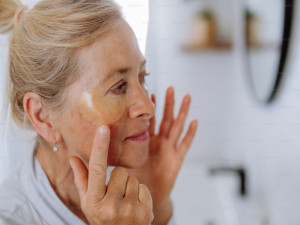Skin problems are a common concern affecting people of all ages and skin types. They can range from mild irritations to severe conditions, impacting both appearance and confidence. Understanding the causes and appropriate solutions is essential for maintaining healthy skin.
One of the most prevalent skin issues is acne, characterized by pimples, blackheads, and whiteheads. Acne often results from clogged pores due to excess oil production, dead skin cells, and bacteria. To manage acne, it is important to maintain a consistent skincare routine that includes gentle cleansing, exfoliation, and non-comedogenic moisturizers. Over-the-counter treatments containing benzoyl peroxide or salicylic acid can help reduce inflammation and clear clogged pores. In more severe cases, consulting a dermatologist for prescription medications or therapies is advisable.
Dry skin is another widespread problem that can cause itching, flaking, and discomfort. Environmental factors such as cold weather, low humidity, and harsh soaps often contribute to dryness. To combat this, use mild cleansers and apply rich moisturizers regularly, preferably after bathing when the skin is still damp to lock in moisture. Drinking plenty of water and using a humidifier can also support skin hydration.
Eczema and psoriasis are chronic inflammatory skin conditions that cause redness, itching, and scaling. These conditions require specialized treatment plans tailored by healthcare professionals. Common approaches include the use of topical corticosteroids, moisturizers designed for sensitive skin, and lifestyle modifications to avoid triggers like allergens or stress.
Sun damage is another critical concern leading to premature aging and increased risk of skin cancer. Protecting your skin with broad-spectrum sunscreen of at least SPF 30 daily, wearing protective clothing, and avoiding peak sun hours can significantly reduce damage.
In addition to topical treatments and preventive measures, adopting a balanced diet rich in antioxidants, vitamins, and omega-3 fatty acids supports overall skin health. Avoiding smoking and managing stress levels also play crucial roles in maintaining a radiant complexion.
In conclusion, while skin problems can be distressing, most are manageable with proper care and timely intervention. Regular skincare routines tailored to individual needs, protective measures against environmental factors, and professional guidance when necessary are key strategies for achieving healthy skin.

